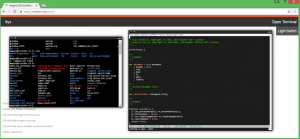This article is also posted to my Intelink blog.
I learned the other day about Hellekson’s Law, which states that more specific policy can be improved for the general case by removing delimiters that narrow the policy scope.
In particular, the thought was originally formulated with respect to government policies regarding Open Source Software: if there is an agency policy about open source software, then it could be improved by removing the words “open source”. Whatever policy statement applies to open source software, probably applies to software in general.
This makes sense to me… although I suspect that it doesn’t apply in all cases. Sometimes there may be specific statements that apply uniquely to open source software, specifically because of it’s open-sourciness. As the original author of the Department of Defense policy statement on open source software, I’m intrigued: how did I do?
Let’s analyze the policy/guidance section of the DoD memo and see if it articulates policy that should apply to all software, not just OSS:
Continue reading →
